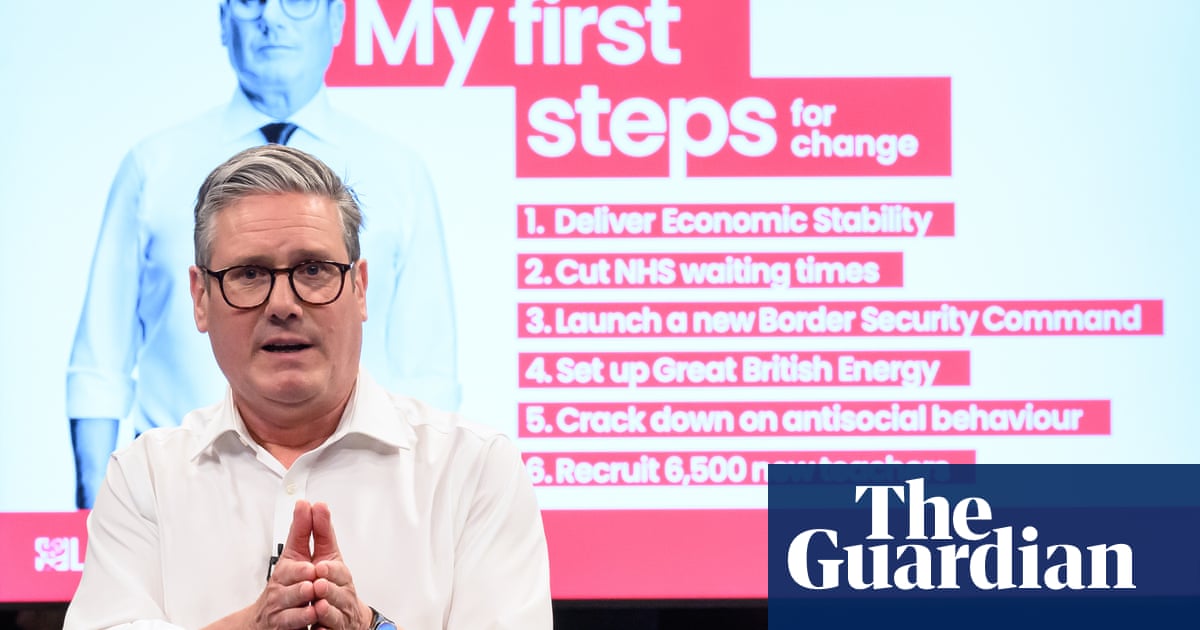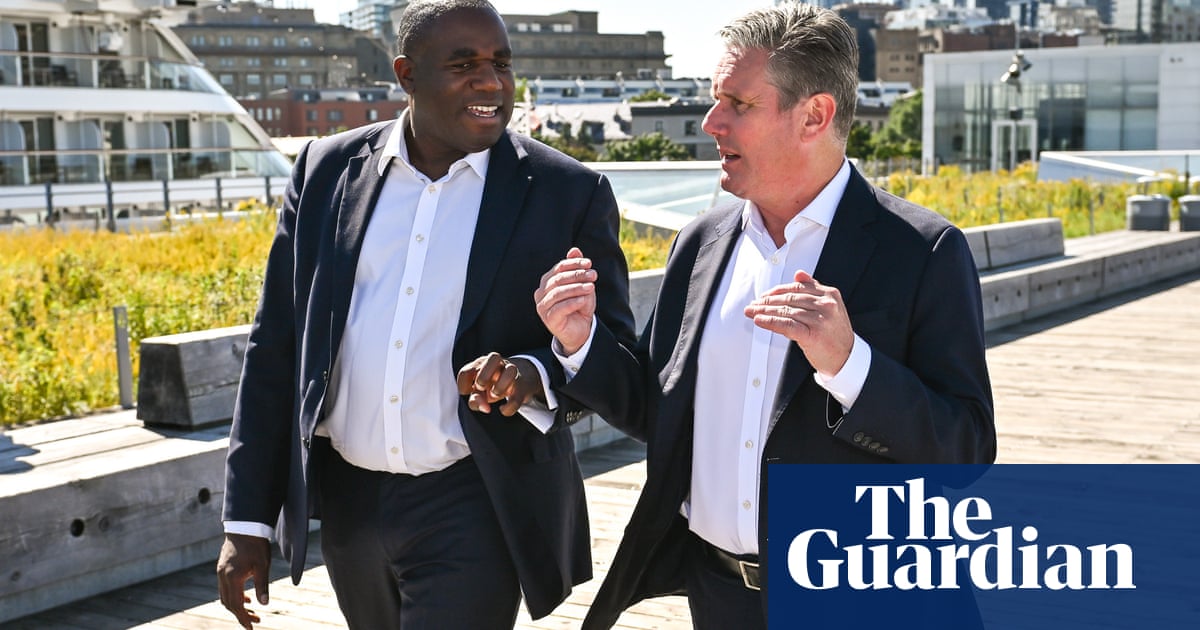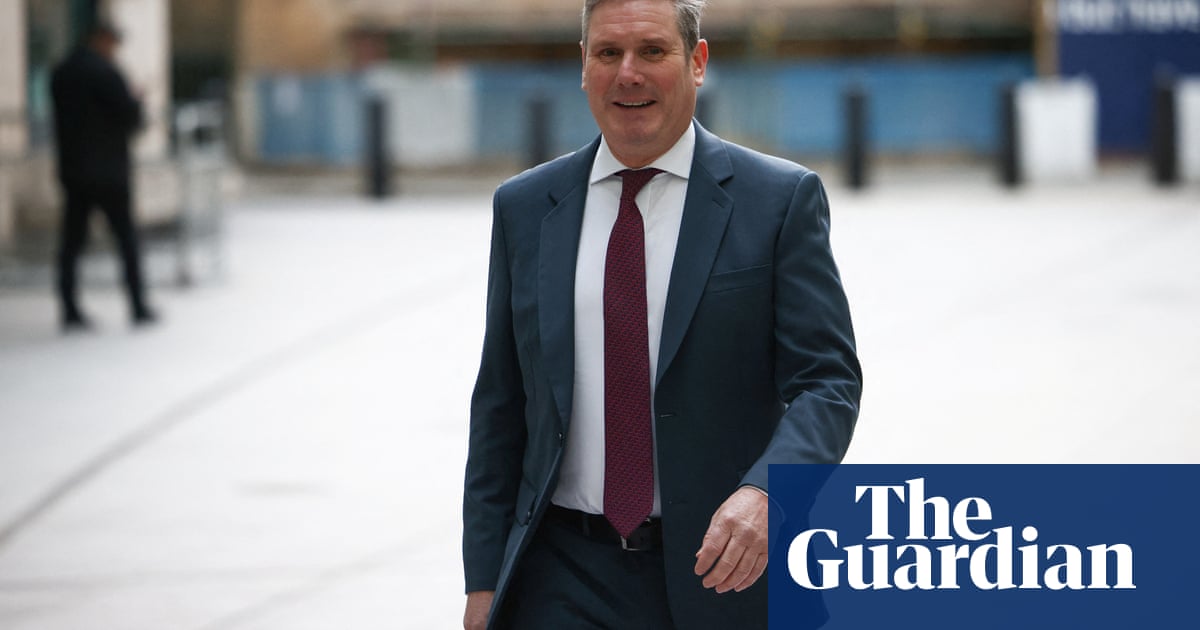
Sir Keir Starmer has won the Labour leadership election with more than 56% of the vote, bringing an end to Jeremy Corbyn’s tenure of almost five years at the top of the party.
Starmer, a former director of public prosecutions, won in the first round as the top choice of members, affiliates and registered supporters, with 490,731 votes cast overall. His nearest rival, Rebecca Long-Bailey, got 28% of the vote, and Lisa Nandy 16% in the final leg of the race.
Angela Rayner was elected deputy leader in the third round on 53%, with the doctor Rosena Allin-Khan in surprise second place on 26% and Richard Burgon on 21%.
Starmer’s immediate priority will be to respond to Boris Johnson’s call for all party leaders to work together to tackle the coronavirus crisis.
Speaking after the result, Starmer said he would work constructively with the government and that his victory had come “at a moment like none other in our lifetime” as normal life had been brought to a halt.
He also said he was aware of the scale of the task ahead of him, with the Conservatives enjoying near-record support.
“We’ve just lost four elections in a row. We’re failing in our historic purpose,” he said in a video message. “Be in no doubt I understand the scale of the task, the gravity of the position that we’re in.
“We’ve got a mountain to climb, but we will climb it, and I will do my utmost to reconnect us across the country, to re-engage with our communities and voters, to establish a coalition across our towns and our cities and our regions with all creeds and communities to speak for the whole of the country.
“Where that requires change, we will change. Where that requires us to rethink, we will rethink.”
Starmer’s victory marks the end of the Corbyn era, during which the party took a sharp turn to the left. The Corbynite left of the party had backed Long-Bailey for leader and Burgon for deputy, but neither came close to challenging the eventual winners, indicating appetite among the membership and supporters for a change of direction following Labour’s election defeat in December.
The former shadow Brexit secretary is consideredsofter-left than Corbyn, but he has promised the former leader’s supporters not to steer too far away from his predecessor’s radical policy programme of nationalisation and fighting austerity.
The MP for Holborn and St Pancras will now start to put together a shadow cabinet and a team of advisers that is expected to draw from all wings of the party in an effort to draw a line under the factionalism that has dogged Labour in recent years. He has suggested he will give shadow cabinet roles to Long-Bailey and Nandy.
Starmer, who was instrumental in the party’s pro-second referendum position, will find his time dominated not by Brexit, but how Labour should respond as an opposition to the coronavirus crisis and its impact.
Just before the announcement of the result, the prime minister wrote to all opposition leaders saying: “As party leaders, we have a duty to work together at this time of national emergency. Therefore, I would like to invite all opposition leaders to a briefing with myself, the chief medical officer and the chief scientific adviser next week.”
In his acceptance statement, Starmer said Labour would “engage constructively with the government, not opposition for opposition’s sake” during the crisis. “Not scoring party political points or making impossible demands. But with the courage to support where that’s the right thing to do.
“But we will test the arguments that are put forward. We will shine a torch on critical issues and where we see mistakes or faltering government or things not happening as quickly as they should we’ll challenge that and call that out.”
Rayner said it would be a “long and difficult road ahead but we must unite, both in the face of this crisis and to offer the better future that the citizens of our country deserve”.
“Things have dramatically changed in our country in recent months but our values remain the same, and more important than ever,” she said.
“Those are the values we will reflect in our actions as an opposition and a movement – standing up for our public services, for our workers and carers, and for a society in which people work together and look after one another.”
Starmer and Rayner were congratulated by a wide range of trade unions and affiliated groups, including former Corbyn supporters.
Unite, which had backed Long-Bailey and is Labour’s biggest donor, highlighted their pledges to “build upon our party’s radicalism”.
Len McCluskey, the Unite general secretary, said: “It is the job now of our movement to support them in this as they move forward to ensure our party plays its full part in our national political life in these unprecedented times.”
Momentum, the grassroots group of Corbyn supporters, released a statement signalling its intent to hold Starmer to account in terms of keeping support for public ownership of national services, a green new deal, scrapping tuition fees, closing immigration detention centres and taxing the top 5% of earners.
“His mandate is to build on Jeremy’s transformative vision, and this means appointing a broad shadow cabinet who believe in the policies and will work with members to make them a reality,” a spokesman said.
“In this new era Momentum will play a new role. We’ll hold Keir to account and make sure he keeps his promises, champion big ideas like the green new deal, build the power of Labour members and do everything we can to get a Labour government elected.”












